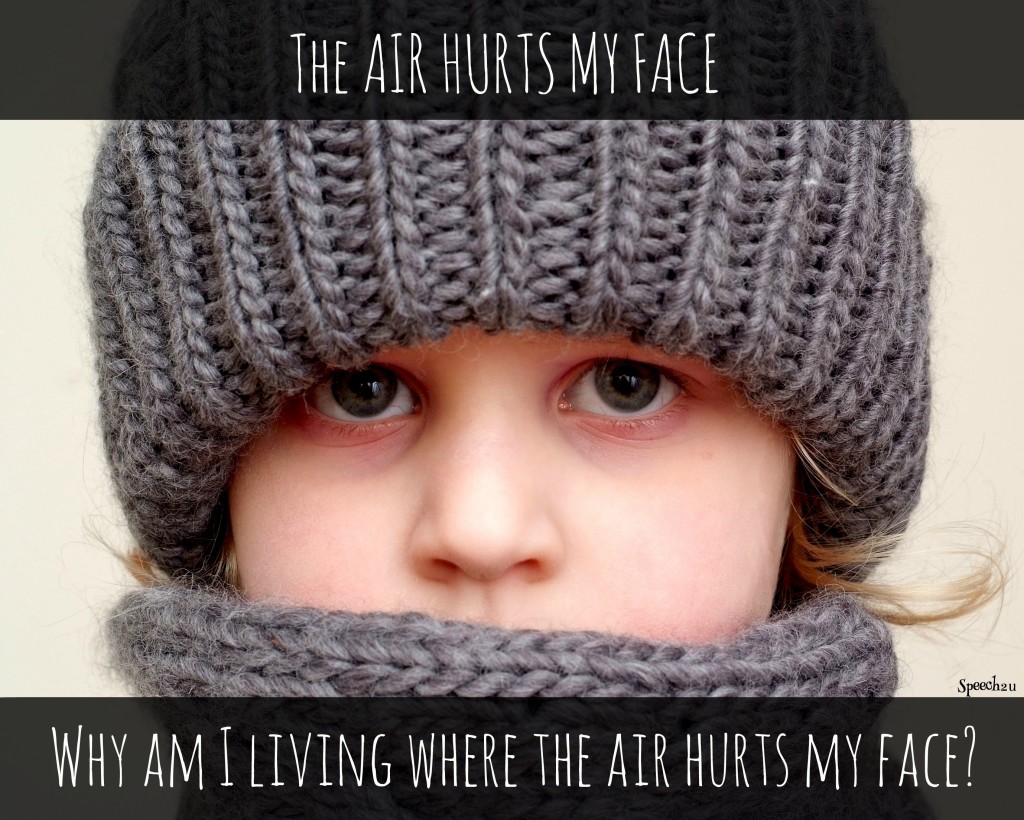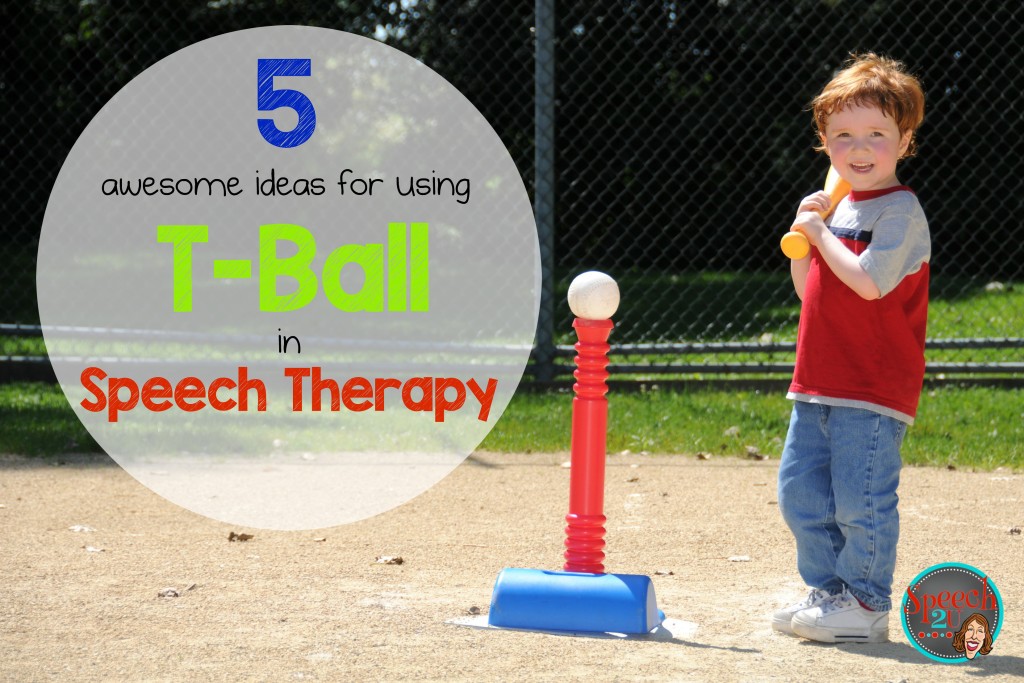Is anyone else staring out their window longingly at this time of the year? Assuming you have a window. I’ve been in a few closets in my day where I didn’t realize that the weather was nice until I went out to my car. I live in Minnesota. We have been known to have some pretty cold, snowy winters. A few years ago, it was cold enough to make bubbles freeze-which was fun for about 20 minutes. Around this time, most of my MN friends post a variation of this meme:

It’s a valid question. This year, we were blessed with a mild winter. There was one really cold week-but I was in Belize and missed it. Does it make me a bad person when I enjoy my vacation more when it is miserable weather back home? The best part of living in a cold climate-is the elation you feel when spring finally arrives. I’m excited to be linking up with my fellow Frenzied SLPs to share how I stopped gazing out my window and started taking my therapy outside.
The easiest thing to do is just bring your regular materials outside. I’ve hidden cards in the grass and had my clients find them or just brought a picnic blanket and sat on the blanket while we worked on our goals. A great activity for drill activities is to play T-Ball.
I love playing T-ball when working with articulation and syntax drills. My clients are really motivated to play the game and so they are willing to do a lot of repetitions in between turns. Plus the set up is easy. Simply set up your 4 bases and the T-ball stand. In between turns, I have students complete 10-20 drill activities. The movement helps them stay on task and I am often able to get more repetitions in than I would during traditional table top activities.

Here are few other ways to play:
Articulation Speech Therapy T-Ball:
Have clients say a set number of words before moving to each base or between turns. You could also work on progressive articulation. For this, I have a set of 5-10 specifically chosen stimuli words. Here’s how we practice:
- Home base: Say each word one time.
- First base: Say each word three times
- Second base: Say each word in a carrier phrase
- Third base: Say each word in a different phrases
- Home: Say each word in a sentence.
BOOM! If you started with a list of 10 words, your student has now said their target words 70 times. Make sure they get at least 2-3 turns and you’ve gotten over 100 correct repetitions. You may have to slow them down or pause before saying their words depending on skill level but I like to progress my clients from words into sentences vs. staying at a word level whenever I can.
Syntax Speech Therapy T-Ball
Usually I drill at each base. I might set up stations (home base: regular tense verbs, first base: irregular tense verbs, second base: future tense verbs etc.) If I am working on verb tense forms, I might vary the difficulty by giving the initial verb and verb tense form before they hit the ball (ex. throw/threw).
- Home base: Repeat targeted irregular form given a model.
- First base: Produce irregular tense form without a model
- Second base: Produce irregular tense form in a cloze sentence (ex. Today I throw, yesterday I _____)
- Third base: Produce irregular tense form in a whole sentence. (Today I throw, the student has to say, “Yesterday, I threw.”)
- Home base: Generate original sentences using present and past tense forms.
Even More Syntax Speech Therapy T-Ball
If you are working on sentence construction, you could have the 5 W approach to have them give you information.
For example: I show the student a high interest pictures such as this one. 
- Home base: Who +Did what The man dove
- First base: Where off the cliff
- Second base: When on vacation
- Third Base: Why because it was fun
- Home base: Produce the whole sentence. The man dove off the cliff when he was on vacation because it was fun.
Comprehension Speech Therapy T-Ball
For this activity, I read a short paragraph or a few sentences worth of information. I ask information at each base:
- Home base: Who
- First base: What
- Second base: Where
- Third Base: When
- Home base: Why/How OR story retell.
Vocabulary Speech Therapy T-Ball
This is really a fun way to work on defining word-especially using semantic mapping strategies. Give your student or client a word when you are “pitching” and then have them define the word as they are rounding the bases. If they can state 4 different attributes they score a home run. You can also make it easier by providing cues at each base. For example:
- Home base: Category (ex. watermelon is a fruit))
- First base: Function (ex. You can eat watermelon and spit the seeds out)
- Second base: Appearance (watermelon is red with a green rind)
- Third Base: Location (you can buy watermelon at the store)
- Home base: Definition (watermelon is a fruit that you eat and spit the seeds out. It is red with a green rind. You can buy watermelon at the grocery store.)
If you are using Sara Smith’s Expanding Expression Toolkit, it is fun to use her EETCHY steppers as the bases.
Those are just a few suggestions-there are multiple ways you can adapt T-ball to work on your speech goals this spring.
Looking for more outdoor speech therapy games? Check out my favorite 5 games here:
QUESTION: Are you able to take your speech sessions outside? If you are, what are your favorite activities? Link up with the Frenzied SLPs to share your ideas.





Love, love, love the t-ball theme and all of the ideas!
SO many great ideas to elicit all types of speech/language goals! Your students must love it!
Love, love, LOVE this idea!
I love the idea of using t-ball and all the variations!
Thanks for posting all the details! I never thought of using t-ball with clients! How fun!!
OMG I posted similar activities with kickball! Great minds…!
OMG, I posted the same activities with kickball. Great minds…
Well these lessons plans will be printed and ready to go! Love this activity for mixed groups outside! Now to find a week so sneak this in! Thank you!